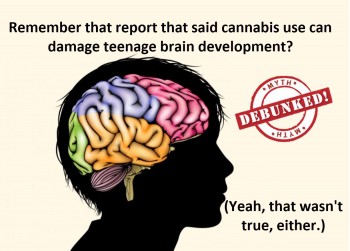
In a phase 2b clinical trial, Beckley Psytech has started treating the first subject for BPL-003, an intranasal synthetic formulation of the psychedelic chemical 5-MeO-DMT intended for patients with treatment-resistant depression.
With FDA clearance for investigational new medication status in February, this groundbreaking research represents the biggest controlled examination into the potential of 5-MeO-DMT, involving 40 locations throughout Australia, Europe, and the US.
The trial, employing a randomized, quadruple-masked design, seeks to identify optimal dosages of BPL-003, complemented by psychological support, in 225 individuals grappling with moderate to severe treatment-resistant depression, compared to a placebo group.
Efficacy will be gauged using the Montgomery-Asberg Depression Rating Scale at various intervals throughout the trial, with all participants receiving psychological support before, during, and after dosing. An open-label extension is slated for select sites eight weeks post-initial dosing to evaluate sustained effects following a second dose.
Anticipated findings from this phase 2b endeavor, projected by late 2024, will augment insights gleaned from the ongoing phase 2a exploration of BPL-003, as highlighted by the company.
Cosmo Feilding Mellen, CEO of Beckley Psytech, expressed confidence in the compound, citing promising safety and pharmacokinetic data. He emphasized its capacity to induce brief yet profound subjective experiences correlating with therapeutic benefits, underscoring the company's eagerness to advance BPL-003 through the clinical development pipeline.
Unprecedented Research Scope
An important turning point in the field of psychedelic research, especially in the area of mental health therapy, was reached with the start of Beckley Psytech's phase 2b clinical experiment. The large-scale nature of this experiment highlights an important development in our knowledge of the therapeutic potential of psychedelic substances, with a particular emphasis on 5-MeO-DMT for patients suffering from depression that does not respond to conventional therapy. This experiment, which spans 40 sites throughout Australia, Europe, and the US, is the biggest controlled investigation into the possible effectiveness of 5-MeO-DMT, in contrast to earlier research. This wide outreach guarantees a varied pool of participants and improves the trial's outcomes dependability and generalizability.
A rising awareness among scientists of the need for novel strategies to tackle the widespread problems associated with treatment-resistant depression is reflected in the decision to launch such an extensive research project. Researchers want to increase the number of therapy choices available for those who have not reacted well to traditional medications by investigating the therapeutic benefits of 5-MeO-DMT in a rigorous clinical environment. The trial's multi-site design also makes it easier for clinicians and researchers in various areas to collaborate, which promotes a group effort to further our understanding of psychedelic-assisted treatment.
The size of this phase 2b experiment not only emphasizes the significance of its findings, but also demonstrates Beckley Psytech's dedication to pushing the limits of psychedelic research. Through strategic alliances and diligent preparation, the firm has proved its commitment to performing high-quality clinical studies that meet rigorous scientific criteria while investigating novel treatment approaches. This innovative method not only aids the area of mental health treatment, but also helps to de-stigmatize psychedelics by demonstrating their ability to treat significant psychiatric illnesses safely and responsibly.
The experiment is expected to yield valuable insights that might influence future research, clinical recommendations, and regulatory choices related to the use of psychedelic substances in mental health therapy. This is because the trial is expected to proceed and data will accrue. Psychedelic-assisted therapy is being promoted as a possible therapeutic option for the intricate problems associated with treatment-resistant depression, thanks to the combined efforts of researchers, physicians, and study participants.
Trial Design and Objectives
BPL-003's phase 2b clinical trial has been carefully designed to assess the drug's potential as a therapy for people with depression who are not responding to conventional treatments. The experiment uses a quadruple-masked, randomized design to reduce biases and guarantee the validity and dependability of the results. This methodological rigor bolsters the foundation for well-informed decision-making on developing BPL-003 and increases the legitimacy of the study's findings.
Central to the trial's objectives is the identification of optimal dosages of BPL-003 that can effectively alleviate symptoms of moderate to severe treatment-resistant depression. By employing a range of doses and comparing them against a placebo group, researchers seek to discern the therapeutic window within which BPL-003 demonstrates the greatest efficacy while minimizing adverse effects. This dose-finding aspect of the trial is crucial for informing subsequent clinical studies and eventual therapeutic use.
The experiment incorporates psychological support as an additional therapeutic component in addition to dose optimization. All patients get thorough psychological care before, during, and following medication since it is acknowledged that depression is a complex condition with psychosocial components that may influence treatment outcomes. To promote complete healing and recovery, this holistic approach emphasizes the need to address not only the biology but also the psychological and emotional elements of depression.
Furthermore, the trial's design includes strong metrics for measuring effectiveness, particularly using the Montgomery-Asberg Depression Rating Scale at several points throughout the research. This validated method enables researchers to systematically assess changes in depression symptoms and track the therapeutic benefits of BPL-003 over time. The trial uses standardized evaluation techniques to improve the consistency and comparability of outcomes across multiple research sites, increasing the reliability and generalizability of the findings.
Evaluation Methods and Milestones
A wide range of evaluation techniques and milestones are included in the phase 2b clinical study to assess BPL-003's effectiveness in treating depression that is resistant to therapy. The Montgomery-Asberg Depression Rating Scale, a reliable instrument for gauging depression symptoms and treatment response, is a key component of this evaluation. Researchers can systematically monitor changes in participants' depressed symptoms and evaluate the therapeutic efficacy of BPL-003 in comparison to placebo by giving this scale to participants at different intervals during the experiment.
The study underlines the need to provide psychological support to all participants before, during, and after dosing. This integrated approach stresses the need to meet the holistic needs of patients receiving therapy while also recognizing the complex interplay between biological, psychological, and social factors in depression. The study's purpose is to improve treatment outcomes and participants' overall well-being by offering comprehensive psychological support, such as counseling and therapeutic sessions, during the experiment.
Furthermore, the trial includes an open-label extension phase at select sites, scheduled eight weeks post-initial dosing, to evaluate the sustained effects of BPL-003 following a second dose. This extension phase allows researchers to assess the durability of treatment response and investigate the potential for long-term therapeutic benefits. By extending the observation period beyond the initial dosing phase, the trial aims to provide insights into the maintenance of treatment effects over time and inform recommendations for the optimal dosing regimen of BPL-003 in clinical practice.
Bottom Line
Beckley Psytech's phase 2b clinical trial of BPL-003 for treatment-resistant depression marks a significant milestone in psychedelic research. With its expansive scope, rigorous trial design, and emphasis on comprehensive evaluation methods, the study holds promise for advancing our understanding of psychedelic-assisted therapy. As the trial progresses and data accumulates, it is poised to provide valuable insights that could influence future treatment approaches and regulatory decisions in the field of mental health.






